On Wednesday, April 19, NPR Phoenix reporter Steve Goldstein interviewed ICE president Steve McIntosh about his recent essay: Appreciating the Upside of Nationalism. The interview can still be heard online at the radio station’s website: theshow.kjzz.org (to listen press the ‘play’ button on The Show’s April 19th broadcast blue heading bar, then scroll forward to the beginning of the interview at: 10:33). At the end of the interview Goldstein insightfully asks about the role of pride in maintaining positive forms of nationalism. McIntosh responds by pointing out that while progressives have done well to help us atone for America’s past crimes and abuses, it is also very important to recognize the significant good that America has done, and how it remains a beacon of hope for many people worldwide. We invite you to listen to the interview.
Join Our Newsletter
Contact
The Institute for Cultural Evolution is a 501(c)(3) non-profit, tax-exempt organization.
ICE Privacy Policy
Our Privacy Promise to you
Since our inception in 2013, ICE has invited our stakeholders to join our email list to receive updates and announcements on our progress as a think tank. Email addresses are securely held by Send-In-Blue email service, which ensures the ability to quickly and permanently unsubscribe from our email list at any time. Character Development Exercise results and Worldview Questionnaire results are stored on our secure server.
We respect your confidentiality
ICE ensures that your email address, as well as the data you enter on our website, is held in strict confidence. We will only use your information for its intended nonprofit purpose. We do not sell or trade your information to other organizations or individuals.
We protect your information
ICE takes every reasonable measure to insure that your information is not compromised in any way. Our privacy promise extends online to our Internet website. Online information is transmitted via a secure server using encryption technology. If you choose to send us email, we may retain the contents of your email message, our reply and your email address as part of our ongoing customer service efforts. We reserve the right to contact you after you have contacted us and may send future email to you about ICE. You may unsubscribe to discontinue electronic communication from us at any time.
We keep accurate records
Upon request in writing we will remove your personal information from our databases, except where legislation or regulation requires our retention of it (for example, charitable giving history tied to income tax receipts.)
If you have any questions about our website or our Privacy Promise, please contact the ICE office by email at info@culturalevolution.org.
Character Development Exercise
What Does “Transcendence” Mean?
“Transcendence” or “the transcendent” generally refers to the people and things that are ultimately more important than yourself or your perceived self-interest. For example, that which is transcendent for you could include: Your family, humanity, your deepest convictions, the environment, God, Oneness, your country, animals, freedom, adventure, art, science, a better world, or anything you consider authentically “higher.” Your personal ideals of transcendence are grounded in the people and things that you’re dedicated to, and might even lay down your life for, if it became necessary. Your ideals of transcendence therefore help define your life’s higher purposes.
The word transcendence is used in this exercise as an umbrella term that is friendly to both spiritual and secular notions of transcendent higher purposes. In other words, you don’t have to be religious to recognize the significance of transcendent ideals. Our attraction to a greater good that lies beyond ourselves—our ceaseless striving to serve something higher and create something better—is a fundamental part of what makes us human.
The connection between your ideals of transcendence, your virtues, and your basic moral obligations—to self, to others, and to the transcendent—is illustrated by the graphic below. The specific virtues shown in this graphic are the 7 fundamental virtues, but the specific 7 virtues you choose in this exercise may differ from these classical 7.
For more on virtues and their relationship with transcendence, see the book Developmental Politics, by this exercise’s author, Steve McIntosh.
Three specific examples of completed Portraits of the Good
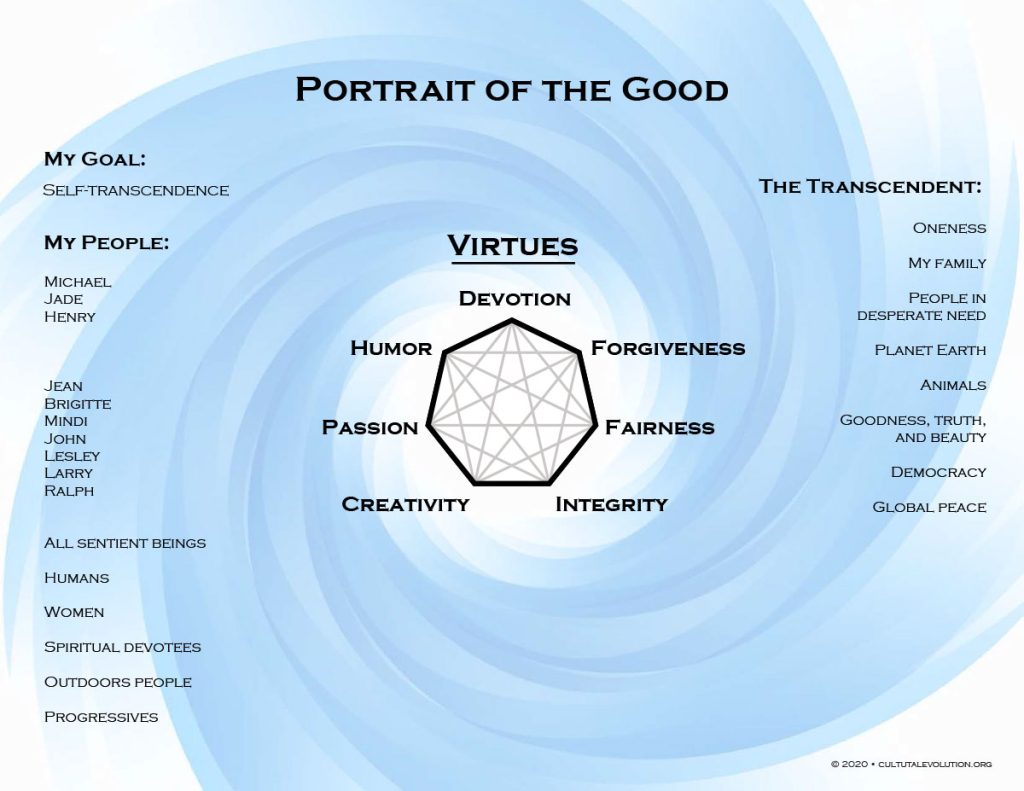
Example 1 of 3
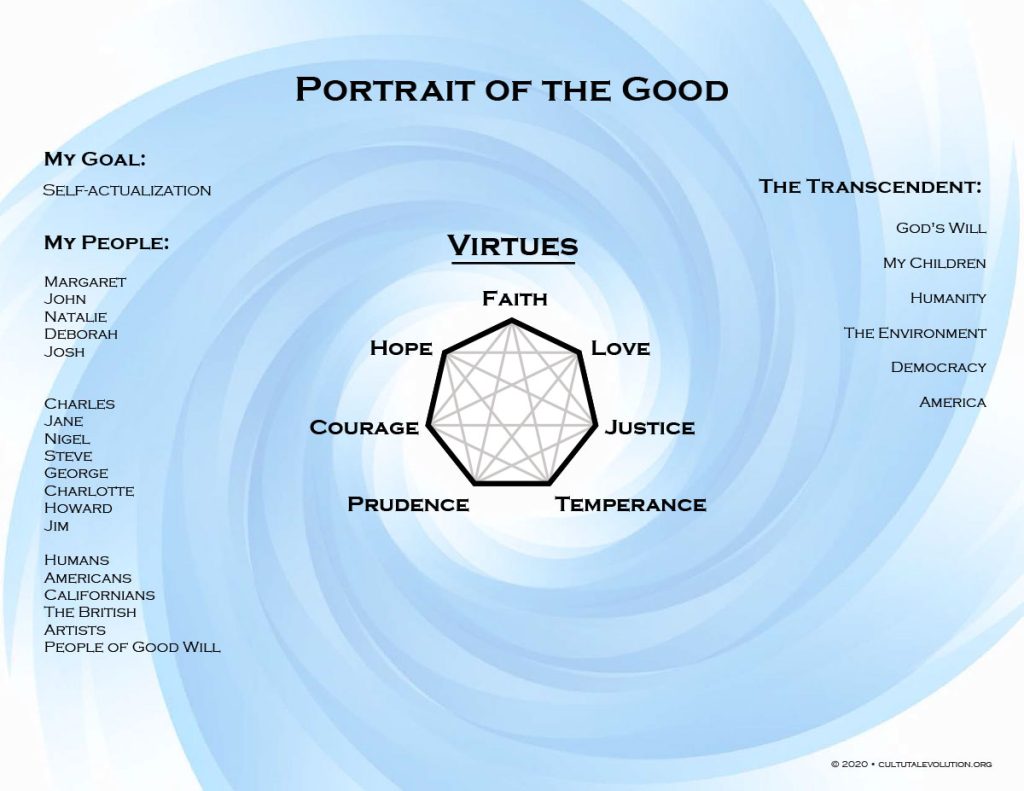
Example 2 of 3
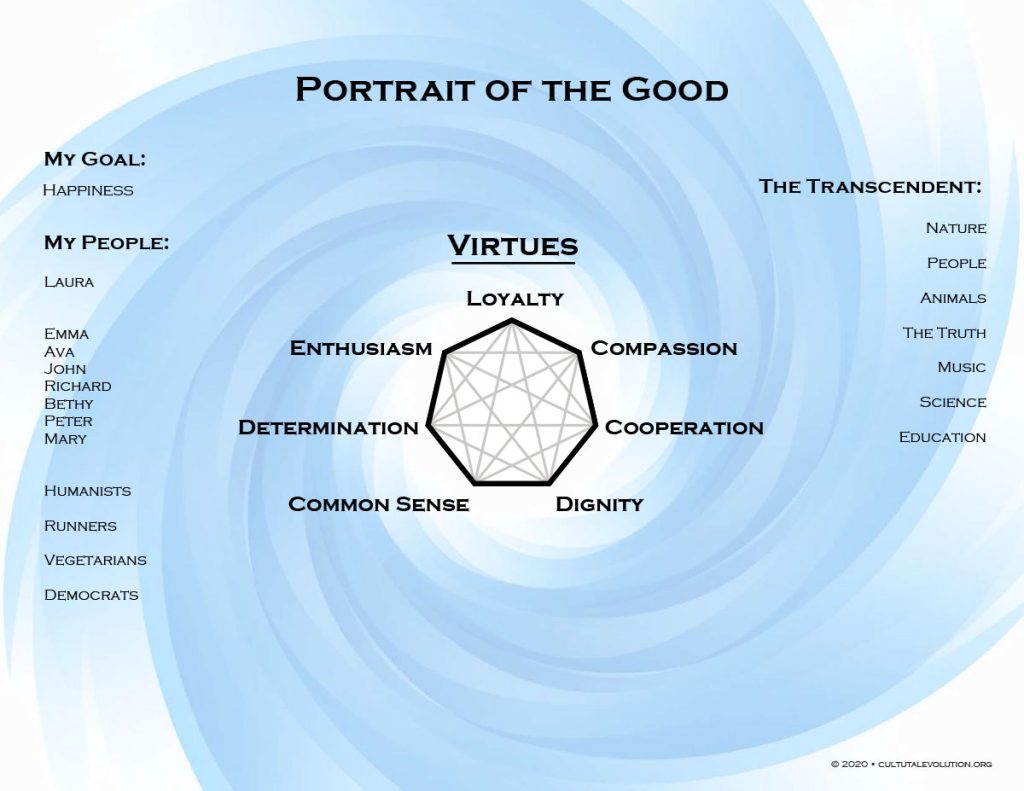

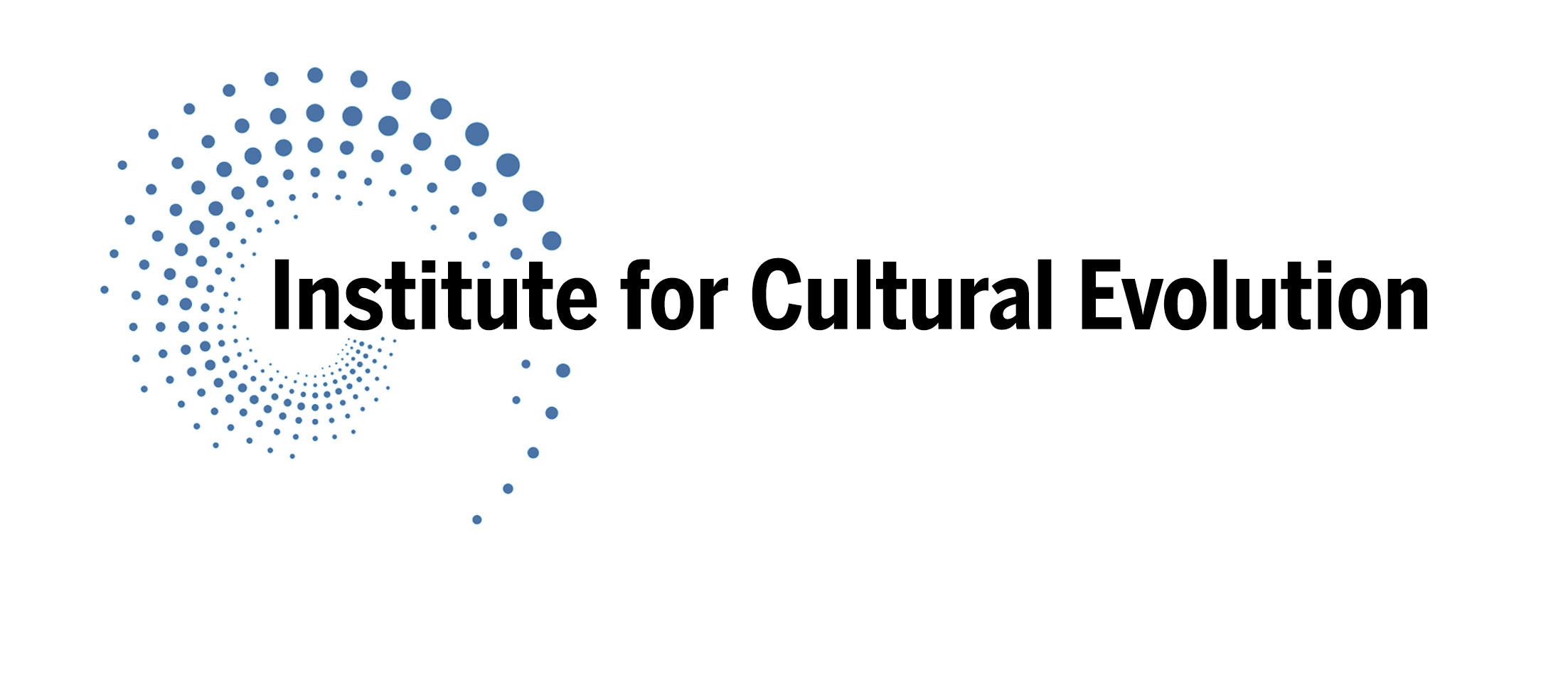
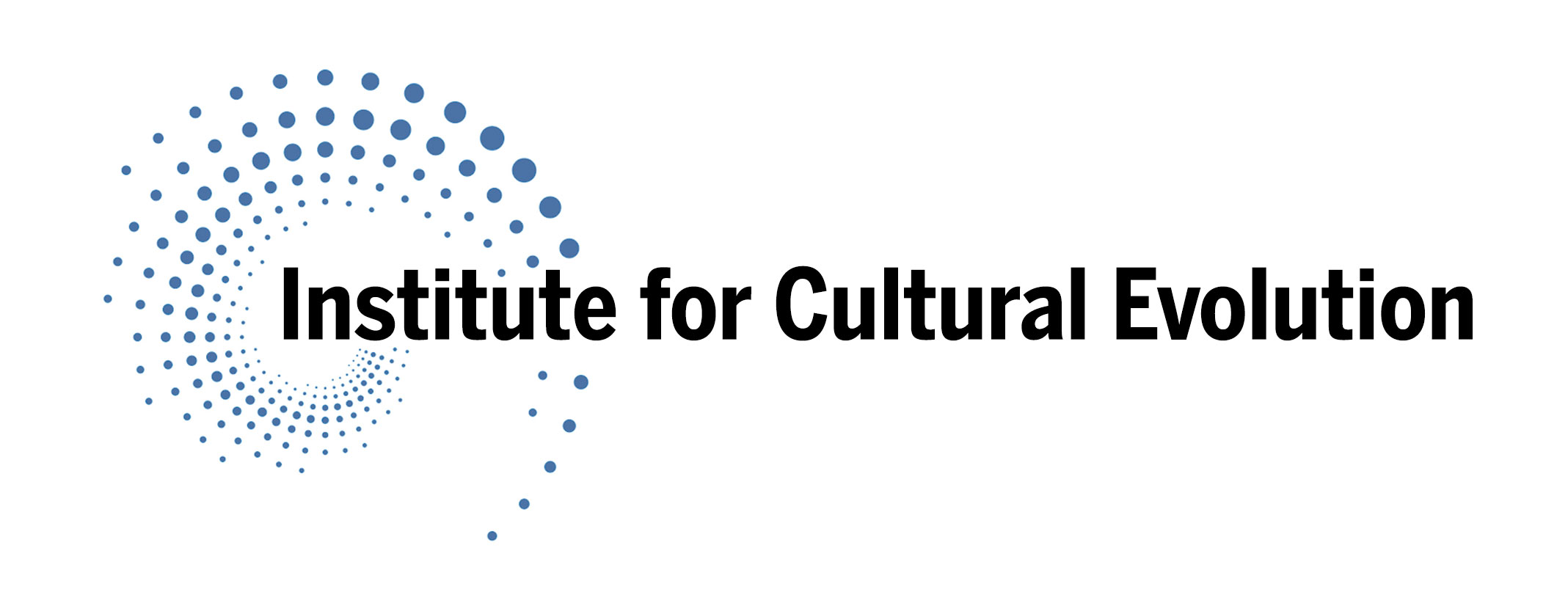
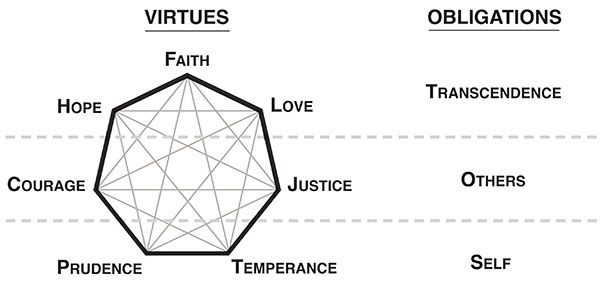
Re: Steve McIntosh’s essay on nationalism and globalism. I usually find SM’s take on cultural issues enlightening. Not this time. The essay is very disappointing. No definition of ‘nationalism’ or ‘globalism,’ rendering the chart comparing the two just about useless. There is almost nothing positive to say about nationalism, usually understood as an attitude of positive regard towards one’s own nation-state to the exclusion of others. Expressed in a fan’s rooting for a country’s team in the Olympics, nationalism is harmless enough, I suppose. But in any form – moderate to extreme, nationalism is irrational; or as integralists prefer to say, prerational. It is a form of ethnocentrism, by definition narrow and exclusive, too easily given to hostility towards other nations and ethnicities, often tainted by racism and/or religious bias.
Nationalism today is particularly irrational since most nation states are multicultural. What exactly is the national identity of a Caucasian citizen of the United States, a Muslim immigrant, a Latino, a Member of the (black) Nation of Islam, a Trump voter who yearns for the return of the Confederacy? National identity is a delusion.
If globalism (undefined, recall) means more than global integration of communication and banking systems and regional trade deals – what I call ‘globalization’ – if it means instead a postmodern embrace of the entire planet and its inhabitants as the ultimate locus of ethical concern, then nationalism and globalism are not an “interdependent polarity.” Their relationship is hierarchical, as any integralist of SM’s stature should realize. Globalism in this sense transcends nationalism but, of course, includes it in the way all postmodern phenomena include the modern. That is not interdependence. Nationalism can thrive quite nicely without globalism, as the current upsurge in right-wing populism worldwide demonstrates. But the reverse is not true. Globalism requires nationalism as the earlier stage out of which it has itself developed. It includes by accepting the stage structure of the nation state (LR quadrant) but rejects the exclusionary, ethnocentric psychology (UL) and culture (LL) that it inevitably produces among developing human beings.
At its worst, nationalism is a political ideology that, as philosopher A.C. Grayling observes, “is a recipe for disaster…..of more use to demagogues and separatists than anyone else.”
Thanks for commenting Charles. It’s worth saying that most interdependent polarities consist of a higher level and a lower level. Each one mirrors a “part and whole” motif. So obviously, the whole is on a higher level than the part, just as globalism constitutes a higher level than nationalism. Indeed, this ubiquitous polar pattern in evolution itself mirrors the primordial polarity of infinite and finite.
As far as definitions go, when not defined, the terms I use in my writing rely on the dictionary definition, which in this case is as follows:
Globalism: the attitude or policy of placing the interests of the entire world above those of individual nations.
Nationalism: devotion and loyalty to one’s own country; patriotism.